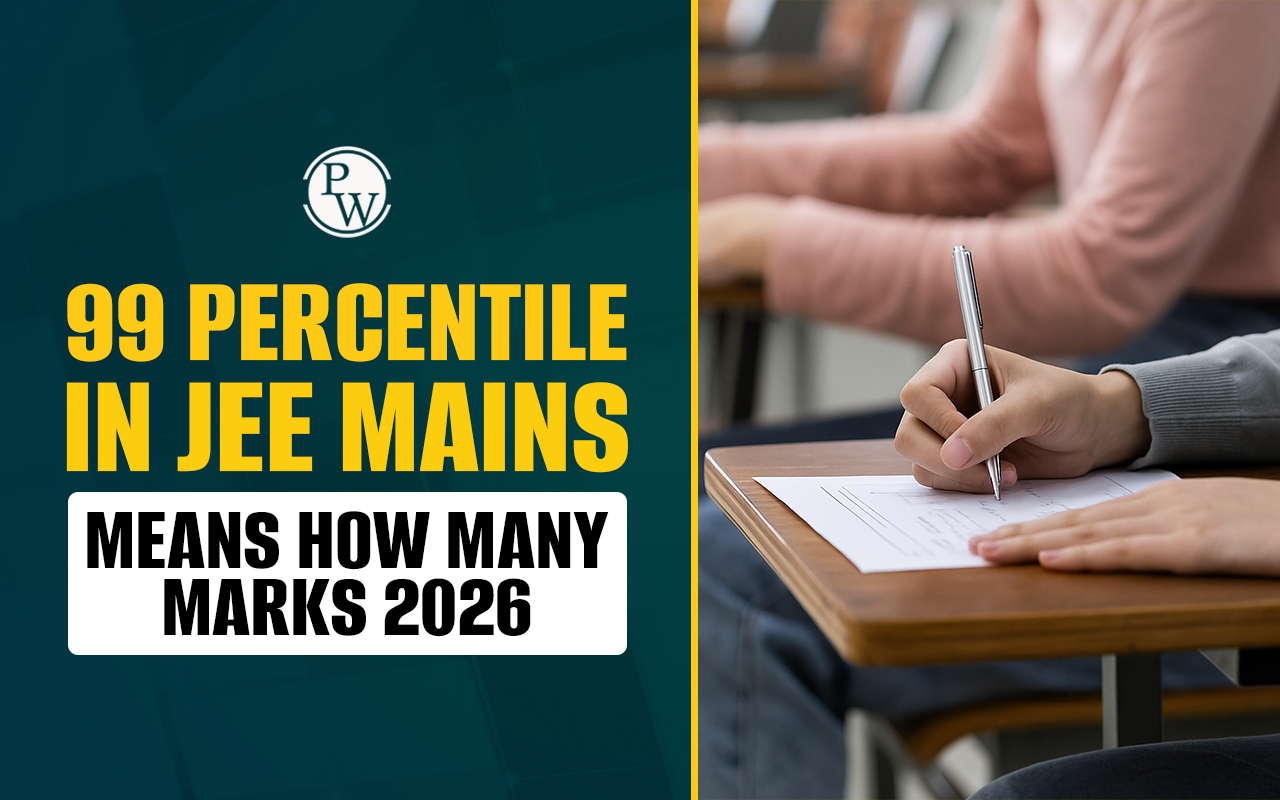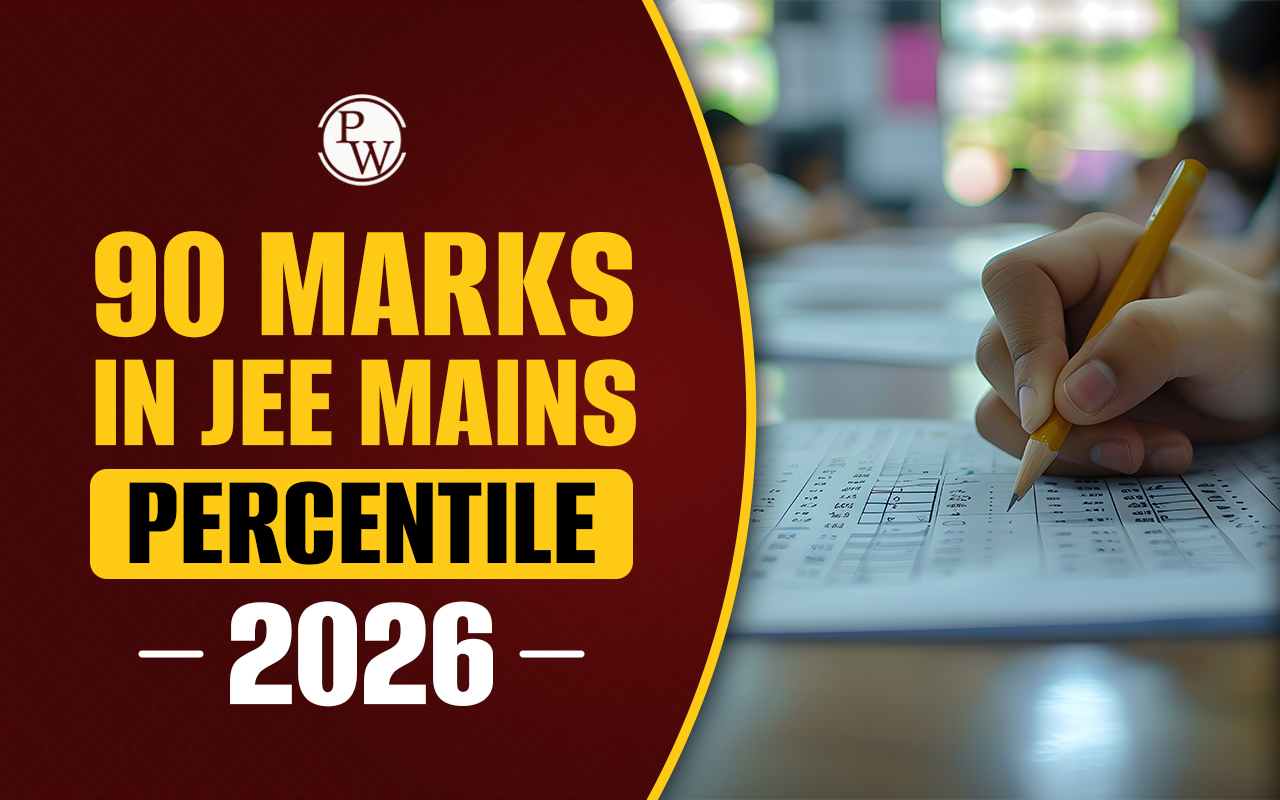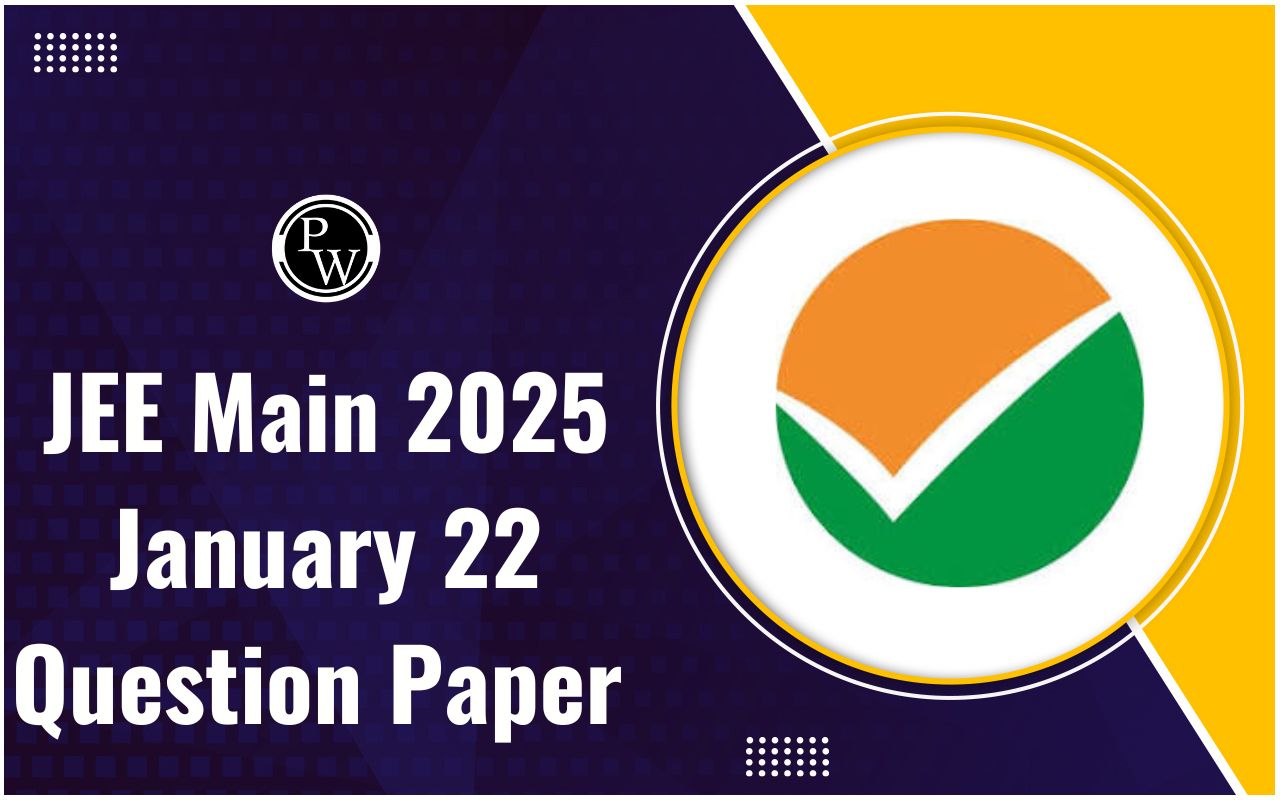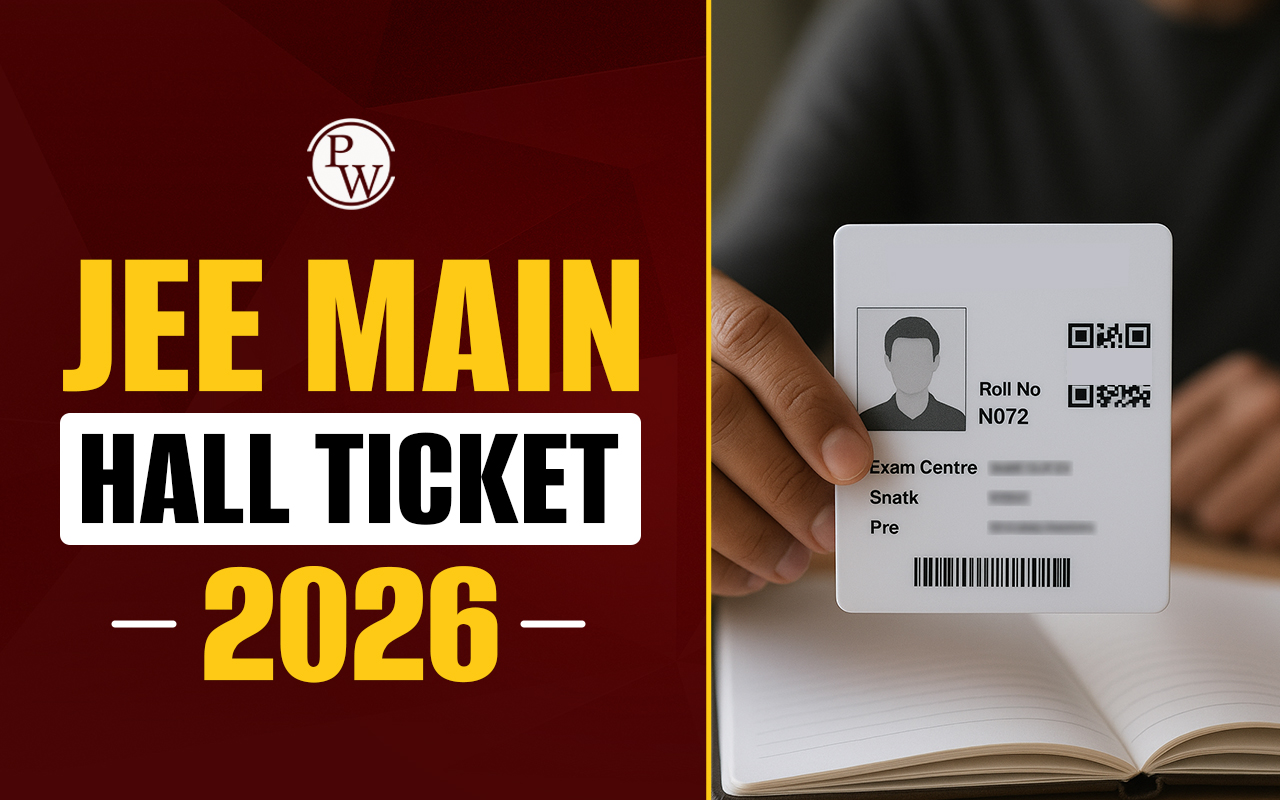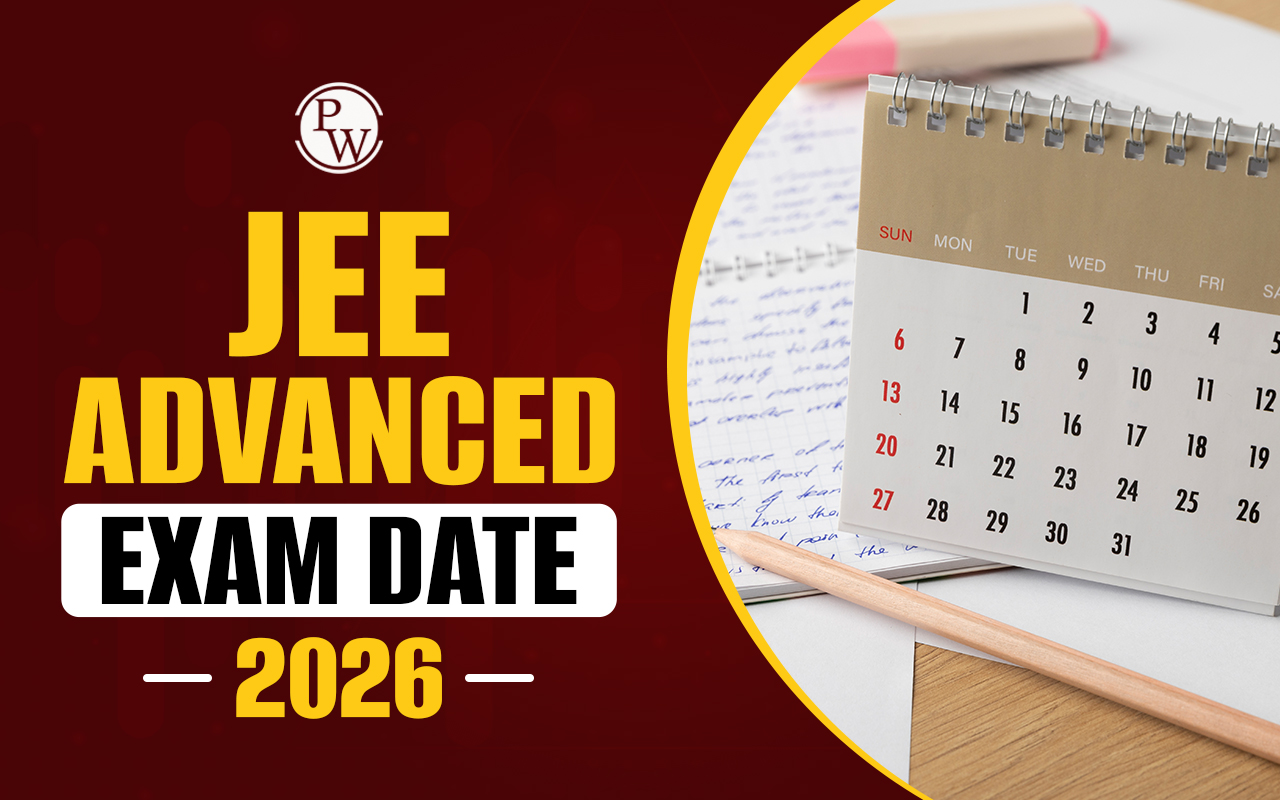
What Is The Difference Between JEE and IIT : When it comes to engineering in India, JEE and IIT are often mentioned together, but they refer to different aspects of the journey. JEE, which stands for Joint Entrance Examination, is a national-level exam that serves as the gateway to securing admission into prestigious engineering institutes, including the IITs (Indian Institutes of Technology). While JEE is the exam, IITs are the top-ranked institutions students aim to join.
Many aspirants who wish to build their careers in engineering and technology-related fields often wonder about the difference between JEE and IIT. To clarify this confusion, this article sheds light on the JEE vs IIT differences along with updates regarding the upcoming JEE 2025 .
What is JEE? Complete Overview
The Joint Entrance Examination is a national-level entrance exam in India designed to assess students seeking admission to undergraduate engineering programs. Conducted in two stages, JEE Main and JEE Advanced , this exam is essential for those aspiring to study in esteemed engineering institutes like NIT, IIITs, IITs, etc., spread across the nation. However, it is important to remember that JEE Main and JEE Advanced are two different examinations. One is conducted by the NTA (National Testing Agency), while the other by different IITs on a rotational basis. The key highlights about JEE Main and JEE Advanced are outlined below.What is the JEE Main Exam?
JEE Main is the first stage of the Joint Entrance Exam, organized by the NTA twice annually for students aspiring to enroll in undergraduate engineering programs at top institutes such as IITs, NITs, and other government-funded technical colleges. The top 2,50,000 performers in JEE Main become eligible to take JEE Advanced, which is required for admission to IITs. JEE Main 2025 exam is going to be conducted for Session 1 from January 22 to 31, 2025. The application window for Session 1 is now closed on November 22, 2024. Check some of the key details here:JEE Main 2025 Key Updates:
- Mode of Exam: Online (Computer-Based Test)
- Subjects: Physics, Chemistry, Mathematics
- Question Types: MCQs and Numerical Value Answers (NAV)
- Total Questions: 90
- Duration: 3 hours
- Subject-wise Questions: Each subject has 20 MCQs and 10 NAV Questions.
- Marking Scheme: +4 for correct answers, -1 for incorrect answers
- Total Marks: 300
- Languages: Assamese, Bengali, Marathi, Odia, Kannada, Malayalam, Punjabi, Tamil, Hindi, English, Telugu, Urdu, and Gujarati
What is the JEE Advanced Exam?
JEE Advanced is the final stage of the Joint Entrance Exam and is used for admission to the 23 IITs in India. This exam is conducted by different IITs on a rotating basis. Only the top 2.5 lakh applicants who pass JEE Main are eligible to appear for JEE Advanced. Moreover, IIT Kanpur will conduct the JEE Advanced 2025 exam, expected to be held in May 2025. To be eligible, one must have either passed or be currently taking their 10+2 exams and must meet the JEE Main Cut Off. The key highlights about the exam are:JEE Advanced 2025 Key Updates:
- JEE Advanced 2025 Conducting Body : IIT Kanpur
- Exam Level: National
- Frequency: Once a year
- Mode of Exam: Online
- Number of Papers: Two
- Language/Medium: English and Hindi
- Colleges Accepting Scores: All IITs and other institutes
- Number of Test Cities: 232 cities (as per 2025)
What Is IIT? An Overview
IITs, which stands for Indian Institutes of Technology, are a prestigious group of autonomous public engineering colleges in India, known for their quality academic excellence and cutting-edge research. As of now, there are 23 IITs across the country. Renowned institutions like IIT Madras, IIT Delhi, IIT Bombay, IIT Kanpur, and IIT Kharagpur are among the best ones. The IITs are categorized into two types: old IITs and new IITs. The Old IITs, established earlier, include institutions such as IIT Bombay and IIT Delhi. The New IITs, established more recently, maintain the same high standards while providing world-class teaching and research possibilities. Check out the list of top IITs in India as per the NIRF rankings in the table below:| List of IITs in India | ||
|---|---|---|
| Name of IITs | NIRF Ranking 2024 | NIRF Ranking 2023 |
| IIT Roorkee | 6 | 5 |
| IIT Gandhinagar | 18 | 18 |
| IIT Patna | 34 | 41 |
| IIT Bhilai | 73 | 81 |
| IIT Mandi | 31 | 33 |
| IIT Bhubaneshwar | 54 | 27 |
| IIT Palakkad | 64 | 69 |
| IIT Hyderabad | 8 | 8 |
| IIT Bombay | 3 | 3 |
| IIT Kanpur | 4 | 4 |
| IIT Bhubaneswar | 54 | 27 |
| IIT Jodhpur | 28 | 30 |
| IIT Guwahati | 7 | 7 |
| IIT Indore | 16 | 14 |
| IIT ISM Dhanbad | 15 | 17 |
| IIT Tirupati | 61 | 59 |
| IIT Madras | 1 | 1 |
| IIT Delhi | 2 | 2 |
| IIT Ropar | 22 | 22 |
| IIT Dharwad | - | 93 |
| IIT Kharagpur | 5 | 6 |
| IIT Jammu | 62 | 67 |
| IIT Jodhpur | 28 | 30 |
What Is The Difference Between JEE and IIT?
The difference between JEE and IIT lies in their roles in the engineering admission process. JEE is an entrance exam conducted at the national level to assess students for admission into various engineering institutes. It consists of two stages: JEE Main and JEE Advanced. On the other hand, IITs are a group of prestigious engineering institutions where aspirants dream to study. To gain admission to an IIT, aspirants must first clear JEE Main and then qualify for JEE Advanced. In simple words, JEE is the exam, and IITs are the top institutions that aspirants aim to join after clearing the exam. For the ease of aspirants understanding, let’s discuss IIT and JEE individually. Candidates can check the difference between JEE and IIT is mentioned below.- IIT (Indian Institutes of Technology) are prestigious engineering institutions that offer undergraduate, postgraduate, and doctoral programs in engineering and technology. JEE is an entrance exam used for admission to these institutions and other engineering colleges in India.
- IITs are the institutions where students pursue their education, while JEE is the exam that qualifies students for admission to these institutions.
- To get admission to an IIT, a candidate must qualify in JEE Advanced, which is the second stage of the JEE exam. JEE Main is the first stage, used for admission to various engineering colleges including NITs and IIITs.
- IITs are known for their high academic standards and global reputation, whereas JEE is a competitive exam that assesses a candidate’s knowledge of Physics, Chemistry, and Mathematics.
- IITs offer degree programs in engineering, while JEE is a qualifying exam that candidates must pass to be eligible for those programs.
What Are the Top 10 IITs in India?
It goes without saying that IITs are among the most prestigious engineering institutions globally, known for their rigorous academics, cutting-edge research, and exceptional faculty. As of the latest rankings, here are the top 10 IITs in India, popular for their excellence, placements, and contributions to science and technology fields.- IIT Madras , established in 1959, is ranked 1st by NIRF.
- IIT Delhi , founded in 1961, holds the 2nd position in the NIRF ranking.
- IIT Bombay , set up in 1958, is ranked 3rd by NIRF.
- IIT Kanpur , established in 1959, is ranked 4th in the NIRF list.
- IIT Kharagpur , the oldest IIT founded in 1951, is ranked 5th by NIRF.
- IIT Roorkee , established in 1847, is ranked 6th by NIRF.
- IIT Guwahati , founded in 1994, holds the 7th position in the NIRF ranking.
- IIT Hyderabad , established in 2008, is ranked 8th by NIRF.
- IIT BHU (Varanasi) , founded in 1919, is ranked 9th by NIRF.
- IIT Indore , established in 2009, is ranked 10th by NIRF.
What Is The Difference Between IIT And JEE? IIT vs JEE Eligibility Criteria
Understanding the difference between IIT and JEE involves knowing the eligibility criteria for both. Here’s a concise overview for the reference:- Eligibility for JEE Main and JEE Advanced: In order to appear for JEE Main, applicants must have completed or be appearing for their 10+2 exams. They need to meet the specific age limit and the number of attempts allowed. Successful applicants from JEE Main are eligible to take JEE Advanced, which is the second stage of the exam.
- Eligibility for Admission into IITs: For admission into IITs, applicants must qualify both JEE Main and JEE Advanced. Additional criteria include age limits, the number of attempts permitted, and the year of passing the Class 12th or equivalent examination.
Why is JEE Important for Admission to IIT?
JEE is vital for gaining admission to the Indian Institutes of Technology (IITs) for several reasons:- Primary Entrance Test : JEE (JEE Advanced) serves as the main entrance exam for IITs. It is the only way for students to qualify for these prestigious institutions, making it a crucial step in the admission process.
- Merit-Based Selection : IITs use JEE Advanced scores to assess students’ proficiency in core subjects such as Physics, Chemistry, and Mathematics. This helps ensure that only the most deserving students based on merit are admitted.
- Uniform Evaluation : JEE provides a standardized method for evaluating aspirants from across the country, ensuring fairness in the selection process.
- Shows Preparedness : Doing well in JEE shows aspirants readiness for the challenging IIT curriculum and their capability of handling the advanced-level studies.
Study Material For JEE 2025 Preparation
Physics Wallah offers comprehensive study material for JEE 2025 Preparation , including well-structured video lectures, detailed notes, practice questions, and test series. The material covers all JEE main topics, ensuring a strong conceptual understanding and effective problem-solving skills.What Is The Difference Between IIT And JEE? FAQs
Ques. Are IIT and JEE the same?
Ans. No, IIT and JEE are not the same. IITs are top engineering colleges in India, while JEE is the entrance exam required for admission into these institutions.
Ques. Is it possible to get admission to IIT without JEE?
Ans. For B.Tech admission at IITs, JEE is mandatory. However, for other courses offered by IITs, such as MTech or Msc programs, admission is based on different entrance exams like GATE, etc.
Ques. What is the difference between JEE and IIT?
Ans. JEE is a national test for students aiming to pursue engineering courses across various colleges in India. While IIT means the top engineering colleges in India. To gain admission to IITs, one must pass JEE Main and JEE Advanced.
Ques. IIT vs JEE, what's the difference in eligibility criteria?
Ans. JEE eligibility involves passing 10+2 in relevant science subjects. To qualify for IITs, aspirants must also pass JEE Main and JEE Advanced.
Ques. What are the benefits of joining IITs after JEE?
Ans. Joining IITs after JEE offers access to top-tier education, world-class facilities, excellent faculty, and strong industry connections. It also provides high placement opportunities and a prestigious alumni network.
🔥 Trending Blogs
Talk to a counsellorHave doubts? Our support team will be happy to assist you!

Check out these Related Articles
Free Learning Resources
PW Books
Notes (Class 10-12)
PW Study Materials
Notes (Class 6-9)
Ncert Solutions
Govt Exams
Class 6th to 12th Online Courses
Govt Job Exams Courses
UPSC Coaching
Defence Exam Coaching
Gate Exam Coaching
Other Exams
Know about Physics Wallah
Physics Wallah is an Indian edtech platform that provides accessible & comprehensive learning experiences to students from Class 6th to postgraduate level. We also provide extensive NCERT solutions, sample paper, NEET, JEE Mains, BITSAT previous year papers & more such resources to students. Physics Wallah also caters to over 3.5 million registered students and over 78 lakh+ Youtube subscribers with 4.8 rating on its app.
We Stand Out because
We provide students with intensive courses with India’s qualified & experienced faculties & mentors. PW strives to make the learning experience comprehensive and accessible for students of all sections of society. We believe in empowering every single student who couldn't dream of a good career in engineering and medical field earlier.
Our Key Focus Areas
Physics Wallah's main focus is to make the learning experience as economical as possible for all students. With our affordable courses like Lakshya, Udaan and Arjuna and many others, we have been able to provide a platform for lakhs of aspirants. From providing Chemistry, Maths, Physics formula to giving e-books of eminent authors like RD Sharma, RS Aggarwal and Lakhmir Singh, PW focuses on every single student's need for preparation.
What Makes Us Different
Physics Wallah strives to develop a comprehensive pedagogical structure for students, where they get a state-of-the-art learning experience with study material and resources. Apart from catering students preparing for JEE Mains and NEET, PW also provides study material for each state board like Uttar Pradesh, Bihar, and others
Copyright © 2025 Physicswallah Limited All rights reserved.
Get App
